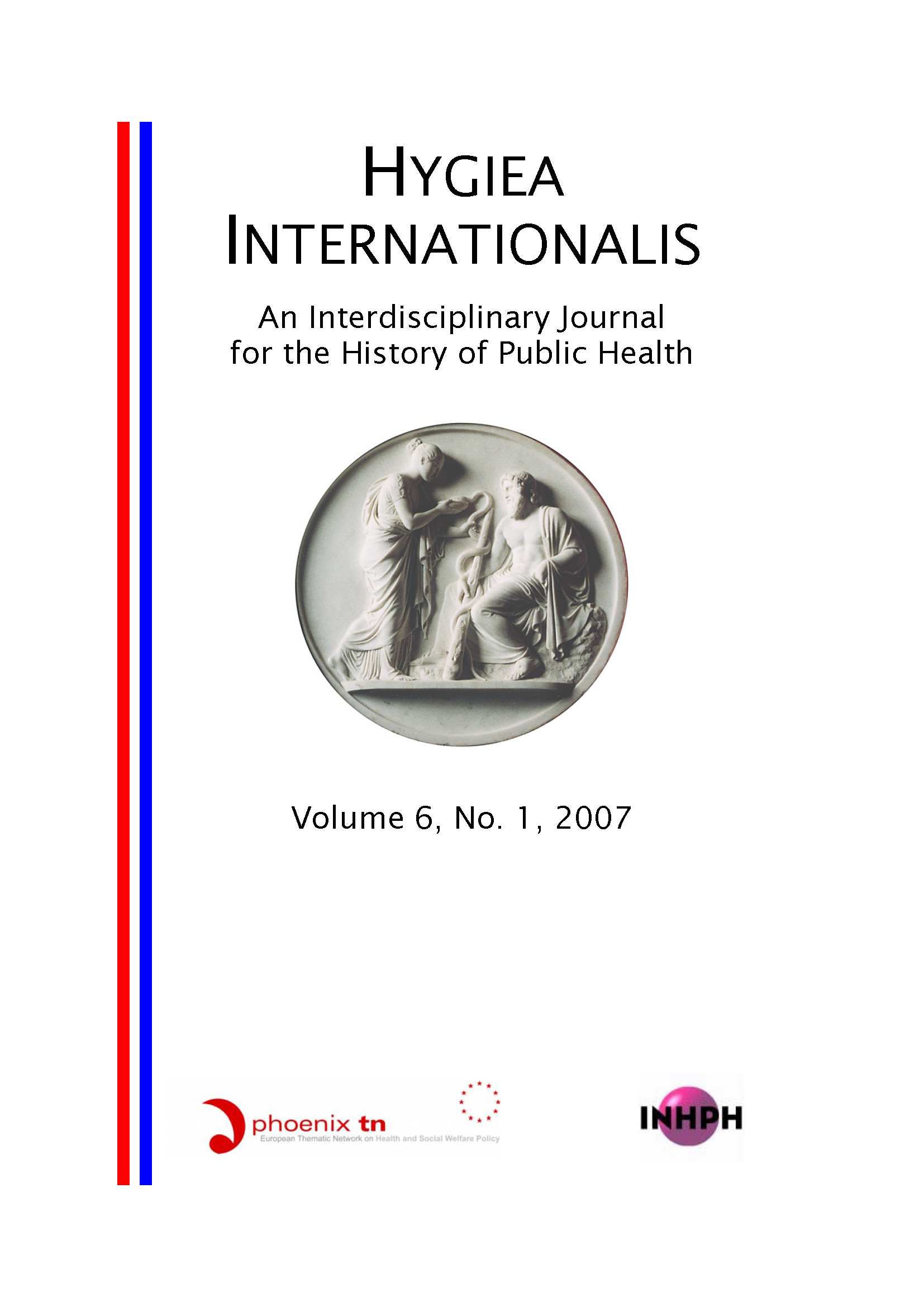State and Insurance
The Long-Term Trends in Danish Health Policy from 1672 to 1973
DOI:
https://doi.org/10.3384/hygiea.1403-8668.07617Keywords:
health policy, social laws, absolutist policy, biopolicy, population health, health insurance, roots of Danish welfare stateAbstract
This paper discuss the path dependency of the Danish tax financed, egalitarian health policy. It is argued, that the Danish health policy of today can not be understood separately from its history. The principles of universalism and decommodification have roots that go back to experiences from nearly 200 years of absolutist, patriarchal biopolitics, including poor laws, educated, authorised and publicly-paid midwives, publicly-paid district surgeons et cetera. The route from absolutist biopolitics to modern welfare state went through enormous, voluntary civic engagement by non-profit health insurance societies (sygekasser), formed in the mid-nineteenth century and controlled and subsidised by the state from 1892.Downloads
Published
2007-07-19
How to Cite
Løkke, A. (2007). State and Insurance: The Long-Term Trends in Danish Health Policy from 1672 to 1973. Hygiea Internationalis: An Interdisciplinary Journal for the History of Public Health, 6(1), 7–24. https://doi.org/10.3384/hygiea.1403-8668.07617
Issue
Section
Articles
License
Copyright (c) 2007 the Author(s)

This work is licensed under a Creative Commons Attribution-NonCommercial 4.0 International License.






